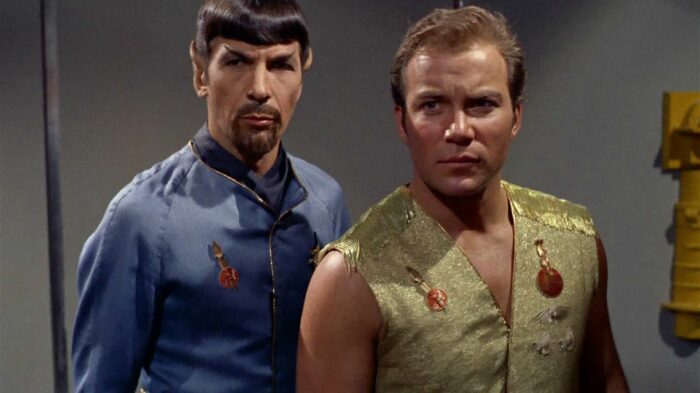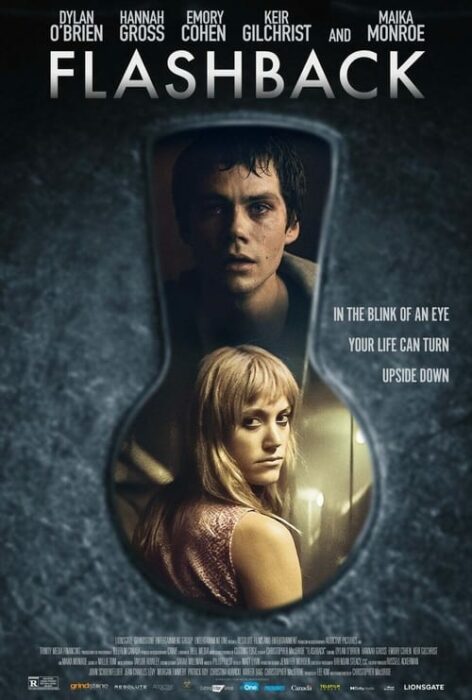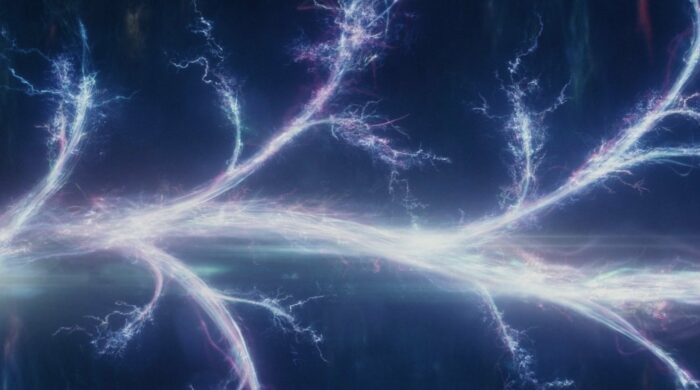Keep the Parallel World Speculations to Stories
“And they lived happily ever after.” So ends the traditional story of a romantic fairy tale. Heroes and heroines bear hardships and deceit, and finally dwell in a blissful kind of ending. You’re left with a sense that nothing bad will ever happen again.
If you’re four years old, that is.
For adults, a more appropriate ending would be:
“… And they didn’t kill each other for fifty years.”
Even if simple endings don’t exist in reality, fairy tales still appeal to us. We finish the story knowing the romantic couple will live life together, no matter what.
That’s the ending for fairy tales in fantasy.
In science fiction, we find another impossible fairy tale: the parallel universe.
Great sci-fi shows keep exploring alternate Earths
Recently on The Write Stuff Radio Show, my guest and I discussed our views on the state of science fiction. We agreed that parallel universes give us great ways to explore unique situations with characters.

Spock and James T. Kirk, officers of the Terran Empire (an evil version of the Federation), in the 1967 Star Trek episode “Mirror, Mirror.”
Who can forget Star Trek’s “Mirror, Mirror” episode? Captain Kirk and crew navigate a universe where “terror must be maintained,” as Spock so eloquently put it. (Spock with a beard was so devilish!) For the Terran Empire, not Federation, conquering worlds is normal. Here the parallel universe trope is used like an Aesop’s fable.
In the Stargate: Atlantis episode “The Deadelus Variations,” Colonel John Shepperd, McKay, Teyla, and Ronon are unwittingly whisked into an exact copy of the Deadelus traveling through a parallel universe. Aboard that ship they meet their parallel-universe counterparts, who are dead. They also discover that another McKay built a parallel-universe engine that’s now broken. Later the crew jump to more universes, where they meet an unusual alien enemy race, get nearly burned by an expanding red dwarf star, and save their counterparts from an enemy alien race.
We must mention Sliders. That whole show focuses on parallel-universe travel. Professor Arturo, Quinn, Wade, and Rembrandt encounter all kinds of scenarios. Was I the only one who had a memorial when Professor Arturo died?
In the bigger screen movie Coherence (2015), we follow our heroine Emily, who on a night of chance is meeting with friends who themselves gather with parallel-universe versions of her friends. At the end, Emily finds a “better” parallel universe of her life. She enters this world, then drugs her counterpart and cracks her on the head, so she can replace her and live her life.
 Flashback (2021) was a trippy movie—truly a blend of parallel-universe and time travel concepts. In this unique film, human choices consciously alter the timelines, and create a parallel universe.1
Flashback (2021) was a trippy movie—truly a blend of parallel-universe and time travel concepts. In this unique film, human choices consciously alter the timelines, and create a parallel universe.1
Parallel-universe fairy tales won’t work on God’s Earth-Prime
Parallel universes shows alternative actions in life separated from a story’s “prime” universe. They share all the hallmarks of a fairy tale: villains, adventures, and other versions of heroes we’ve come to know. Like fairy tales, parallel universes often show us blissful utopias or hopeless dystopias.
However, thanks to the films Coherence and more so in Flashback, I’m struck by the concept of heroes getting infinite numbers of second chances. If Choice A doesn’t work out, she can go here. If Choice B doesn’t work out, she can go there.
In the real world, such a concept would wreak havoc. Parallel-universe possibilities would diminish our role as humans who are responsible for our own moral choices. Even worse, they would portray the Lord as a Creator who can’t get this universe right, so he had to create a bunch more universes. Yes, some people suggest God could have made parallel worlds. But that’s an argument from silence, and we see no hint of this in Scripture. Hebrews 9:26–28 points to Christ sacrificing himself one time for our salvation. You get one life. After that, you’re judged.
Don’t waste your life in the only universe God gives us
Our Lord doesn’t waste time. He doesn’t want us to waste time either. He gives us finite time. Later, we will give account for our choices. Each of us will answer the question: Did you abide by his will or your will?
If we accepted parallel universes as real, we would reject this truth that we have limited time. This concept offers the tantalizing and blissfully escapist idea that we have more options than we really do. For example, most people learn from their mistakes, but what if we can alter our already-made choices, like in Flashback, and make different choices that eradicate the previous timeline? We would alter our very nature, because we would have never made the mistake. When I first watched the movie, I thought this idea very nice and quite provocative. Then I thought: if I hadn’t messed up here, I would have never learned and become a better person.
The Lord gives us finite lifetimes. At each day’s end, our limited human choices, living on our only real Earth, help us learn to use our time wisely. This limitation helps us become more like Jesus Christ. No parallel universe can teach us that.
- Editor’s note: Years before the Disney+ series Loki (2021) reflected this concept with its many character “variants,” both DC and Marvel have also long played with multiverses. Each superhero story-world features so many overlapping timelines, hero and villain versions, and cancelled choices that they’ve become infamous with fans. Writers have made epic comic line–spanning events to attempt sorting various Earths, often generating even more confusion. ↩




























Hi Parker! Good article! It strikes me that parallel realities, if adapted as a real world faith, are a Buddhism variant (get it? Ha-ha). You keep making various choices through different lives until you hit the right one. It’s salvation by works.
By the way, I recently wrote a blog mini-history of the pop culture multiverse. Amazingly, the first such story was written over 500 years ago! You or anyone else interested in how the concept developed in stories can join me for some nerding-out at this link on my author web site: https://minorprofitpress.com/2021/08/23/multiverses-why-are-there-so-many-spider-man-no-way-home-what-if-loki-500-years-in-the-making/
Great article! Thank you!
Thank you for making a sound, Biblical argument against sci-fi. In a time where many sci-fi concepts ARE becoming reality–smart watches, Mars colonies–there are many others that simply cannot be true, ever, because of the Truth of God’s Word. Things like parallel universes, aliens from another planet/galaxy, time travel, etc. Nonbelievers will reject this because they have rejected God, but Christians must not foolishly blend fantasy with reality. We cannot assume something might be true when God is silent on the matter. His thoughts are not our thoughts.
But there IS another reality, and it’s the way Christians can bring the topic home. There is a Heaven and there is a Hell, and that is an eternal reality that awaits every living soul. We would do well not to forget this.
Wonderful article. Made me think a lot. I do like alternate reality stories, including alternate timelines, parallel universes, time travel to the past which changes things, and other variations on the theme. Christians can write all of that and still provide moral lessons and a Christ-centered world view, but like you I draw the line when it starts bleeding into reality.